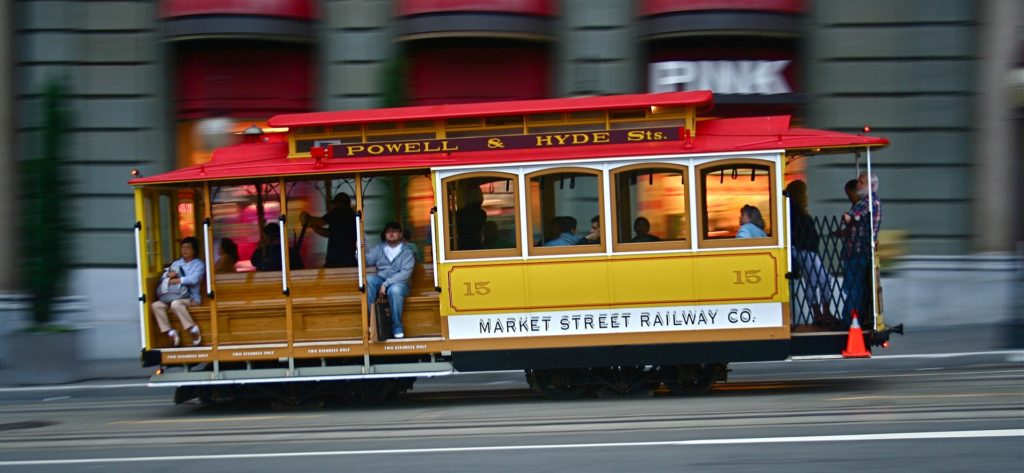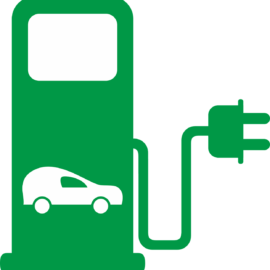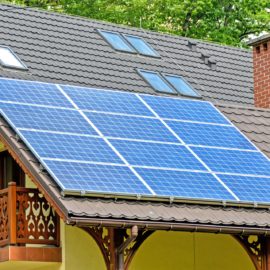
San Francisco has these and we do also but they have a higher ranking and we fell 16 places. In what? National Clean Energy Rankings.
Louisiana’s two most populous cities lost ground this year in an annual ranking of the country’s most energy-efficient cities. New Orleans plummeted 16 spots to 67th place and Baton Rouge slipped three spots to the 100th position, last out of the 100 cities evaluated by the American Council for an Energy-Efficient Economy in its 2021 City Clean Energy Scorecard. First place went to San Francisco, which made the top spot for the first time since the nonprofit research council began ranking cities in 2013. Rounding out the top 5 cities were Seattle, Washington D.C. and Minneapolis, with Boston and New York tying for fifth place. The top cities in the South were Austin, Texas, at 14th and Atlanta at 15th.
nola.com
Let me see. We are looking at wind farms. Solar farms are being built but what are we doing as a city? This recognizes that what a city does is also a result of the national and state government. Want more solar? Tax rebates. Want more electric cars? Fueling stations.
High-scoring cities tended to have a strong focus on transportation, an area where New Orleans and Baton Rouge received low marks. “A lot of the lead cities put a bigger focus on electric vehicles and getting people out of cars and walking and biking,” said Stefen Samarripas, the council’s local policy manager. New Orleans performed best in the council’s community-wide initiatives category, which focuses on broad-based efforts such as New Orleans’ support for increasing the use of solar power and its incentives for green infrastructure projects. But New Orleans notched only a few points on the scorecard’s other categories: building and transportation policy, energy and water utility management and municipal operations. New Orleans’ overall score of 20.5 points put it on par with Stockton, Calif. and just above Mesa, Ariz.
So, we can do things right but, in dropping in the rankings, means we do more things wrong.
The council said New Orleans has not kept up with other cities in drafting building codes that boost energy efficiency. High-scoring cities have established solar ordinances, required electric vehicle charging ports and offered incentives to retrofit buildings for energy efficiency. New Orleans also received low marks for focusing few of its energy-efficiency efforts toward low-income, minority and other “marginalized” groups. “The city does not have an initiative to encourage or require the construction of affordable housing close to transit or subsidy programs to increase marginalized residents’ access to energy-efficient and low-carbon transportation,” the council said of New Orleans. Only about 21% of New Orleans’ low-income households have access to “high quality transit,” which the council defines as buses, ferries and trains that offer frequent, dependable and attractive service. The council said Chicago, Portland, Ore., and Atlanta, which scored high in the transit category, are reducing their overall fossil fuel emissions because they provide a “practical substitute for automobile trips.” New Orleans’ rate of 4.9 electric vehicle charging ports per 100,000 people also harmed its transportation ranking. But New Orleans received its lowest score, 1 out of 10 points, in the “local government operations” category. City Hall has shown little progress retrofitting its own buildings to reduce energy use or switching its fleet of vehicles to electric or hybrid models, according to the council. The council considers Entergy New Orleans’ goal of cutting its fossil fuel reliance in half by 2030 a “moderate” effort compared to the 100 other cities.
City Hall wants to move so maybe this score will come up. I have put in double pane windows. I added a new door with screens. That is me, not the city and nothing encouraged me to do it other than my comfort.
Energy-efficiency goals ranked much lower than actual programs supported with money, an area where New Orleans lagged, according to the council. Lofty goals are good, but “where the rubber meets the road is policy and programs,” Samarripas said. New Orleans officials were provided details about the council’s ratings this week but did not respond when asked for comment. Baton Rouge managed to score zero points on the community-wide initiatives and city operations categories. Its best showing was a paltry 1.5 points in the transportation policies category. The city’s overall score was 3.5 out of 100. “Baton Rouge has few community-wide initiatives aimed at reducing greenhouse gas emissions,” the council said. “It has not adopted citywide climate and energy goals or taken an equity-driven approach to clean energy planning.” The council judged Baton Rouge’s transit offerings worse than New Orleans, saying the annual funding of less than $64 per person for public transportation was unusually low. Baton Rouge’s 16.3 electric vehicle ports per 100,000 people was better than New Orleans but far worse than comparable cities. Baton Rouge officials also did not respond to a request for comment.
Being higher than the bottom of the list is nothing to brag about. We need to lead the south.



